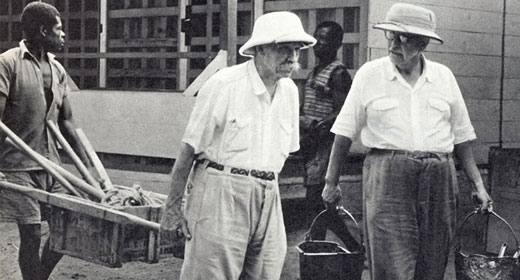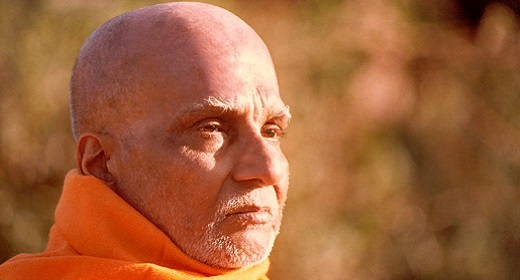Albert Schweitzer was already famous as a musician and author when, at 30, he gave it all up to become a physician in Africa.
In 1905, Europe regarded it as the Dark Continent for its danger, disease and perceived ignorance, and his family, friends and colleagues thought he was crazy to go there.
They asked why he thought he would even be good at it, since he had never taken a medical course.
Nor did he have the money to fund a clinic. The missionary society that had put out a call for doctors even turned him down, since his theology wasn’t orthodox.
Schweitzer was undeterred.
By 1913, he had his medical degree, saved enough money from concerts to get started and won over the skeptics at the society.
He went on to establish a hospital at Lambarene in what is now Gabon, the beginning of a half-century of extraordinary humanitarian work. In 1952, he was awarded the Nobel Peace Prize.
Albert Einstein said of him, “I have scarcely ever known personally a single individual in whom goodness and the need for beauty are merged to such a degree of unity. … Here in this sorry world is a MAN!”
Schweitzer (1875-1965) was born in Kaysersberg in the often disputed region of Alsace, which was then in Germany and is now part of France, so he grew up speaking German and French.
Schweitzer’s Keys
- Nobel Peace Prize winner for humanitarianism.
- Overcame: African jungle conditions to operate a medical clinic.
- Lesson: Walk the talk.
- “Do something wonderful; people may imitate it.”
His father was a Lutheran-Evangelical pastor. The mixed nature of the area bred religious tolerance, so his church was also used for Catholic services.
His father taught the boy music. Schweitzer also took organ lessons from ages 10 to 18, falling in love with the compositions of Bach and Richard Wagner.
While continuing to study organ and piano, he majored in philosophy, first at a college in nearby Strasbourg, then in Paris and Berlin, before returning to Strasbourg, where he received a Ph.D. in 1899.
He graduated magna cum laude the next year with a second doctorate in theology.
Over the next dozen years, he wrote groundbreaking studies on music, launched a movement to change the way organs were built and published “The Quest of the Historical Jesus.” The book documented the mistakes made by scholars in understanding Jesus.
Then he shocked everyone with his announcement about going to the jungles of West Africa.
He really had considered it since he was 21, feeling called to manifest his Christianity in helping those in greatest need.







































